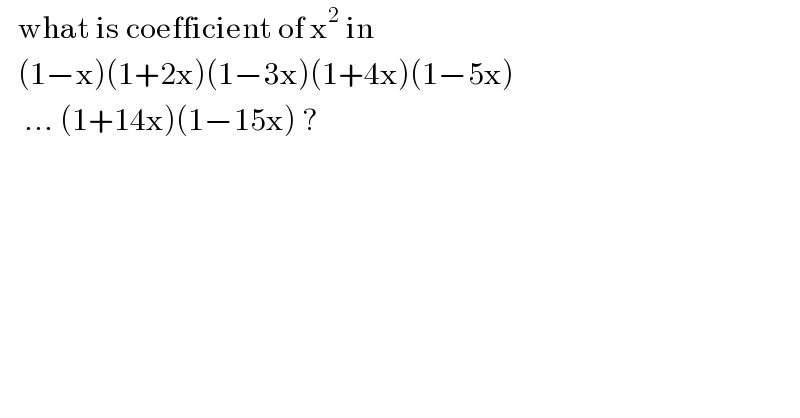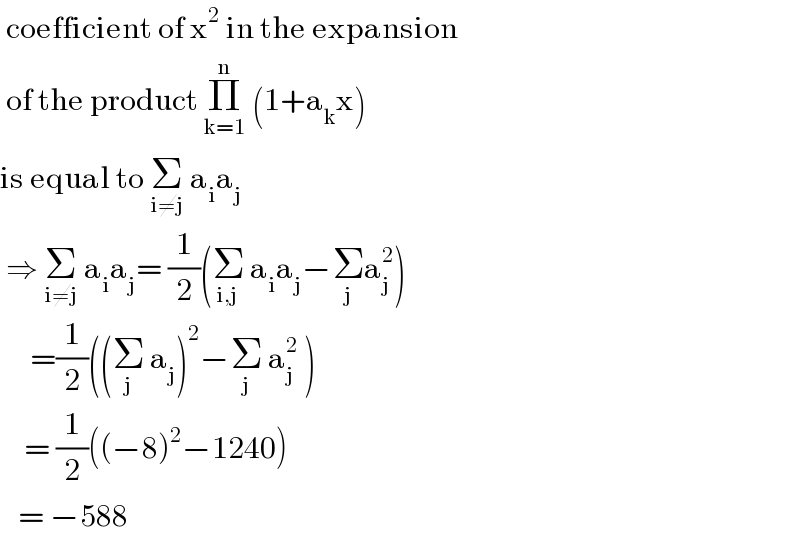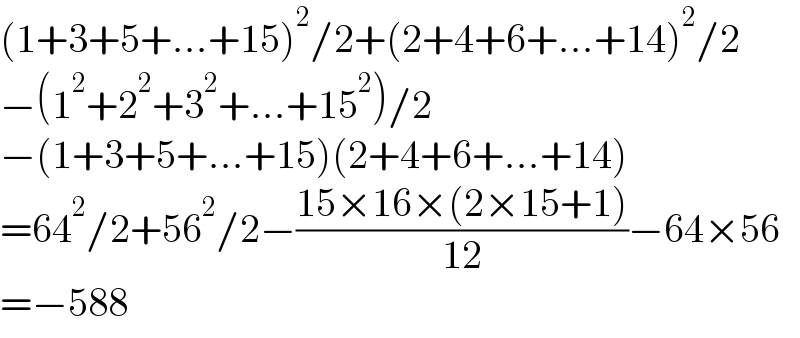
Question and Answers Forum
Question Number 177822 by cortano1 last updated on 09/Oct/22

Commented by mr W last updated on 10/Oct/22

Commented by cortano1 last updated on 11/Oct/22

Answered by mr W last updated on 09/Oct/22

Commented by Tawa11 last updated on 10/Oct/22

Commented by cortano1 last updated on 11/Oct/22

